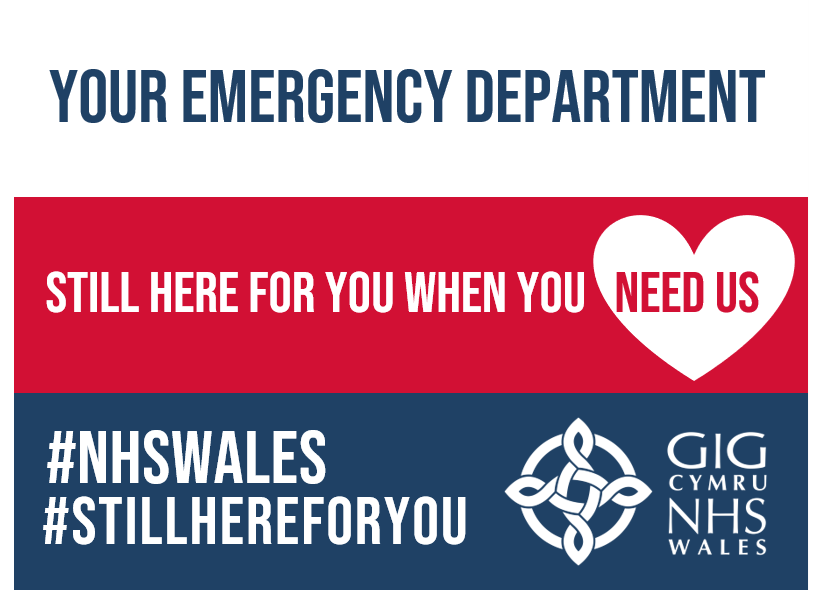
Wales’ emergency departments are still open and here for those in urgent need
Mae adrannau argyfwng Cymru ar agor ac ar gael i’r rhai sydd eu hangen ar frys
People across Wales are being urged to stay safe and well and to remember emergency department staff are available if they need urgent help.
The number of people attending Welsh emergency departments has fallen by up to 50% since the start of the coronavirus pandemic.
But chief executive of NHS Wales, Dr Andrew Goodall, has emphasised that emergency health services continue to be open for all those who need urgent care.
Patient safety within emergency departments has been prioritised and all measures to cleanse facilities are being taken to keep people safe.
Dr Goodall said:
“Our message is clear – if it is urgent, don’t wait, don’t leave it too late.
“Our NHS services are available for the people of Wales – serious illnesses have not gone away because of coronavirus. We are urging people to call 999 or attend their local emergency departments if they are seriously worried about themselves, a child’s or family member’s condition.
“Providing emergency and urgent care for people who have non-coronavirus health issues continues to be a priority for us all. Our hospitals have stringent hygiene measures in place and well-rehearsed protocols to keep those with coronavirus or with symptoms separate from others.”
Dr Tim Rogerson, clinical director and consultant emergency medicine at Aneurin Bevan University Health Board, said:
“We want the public to keep up the good work and continue to keep themselves safe. Some people have waited too long to attend which has caused more harm than good with regards to their health.
“Should they need us we are still here for them. Safety is our number one priority should you need to visit an emergency department. We are taking all measures to clean public spaces keeping you safe while in our care.”
If you or a family member are seriously ill or injured, you should dial 999 or attend your nearest emergency department as soon as possible.
Life-threatening injuries and illnesses, which need immediate action include:
- Breathing problems
- Bleeding
- Severe pain
- Chest pain
- Stroke symptoms
- If a child or older person with an underlying condition becomes unwell.
Notes to editors
Dr Tim Rogerson is available for interview. Please contact Emily.watts@gov.wales or call 07794274162.
We publish data on NHS activity and capacity every Thursday, including emergency department attendance: https://gov.wales/nhs-activity-and-performance-summary
